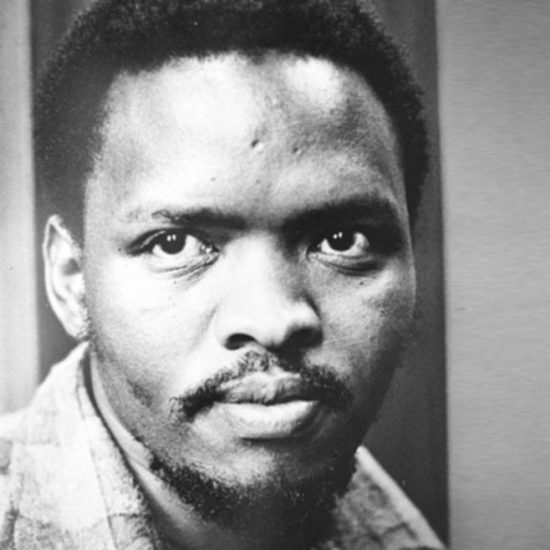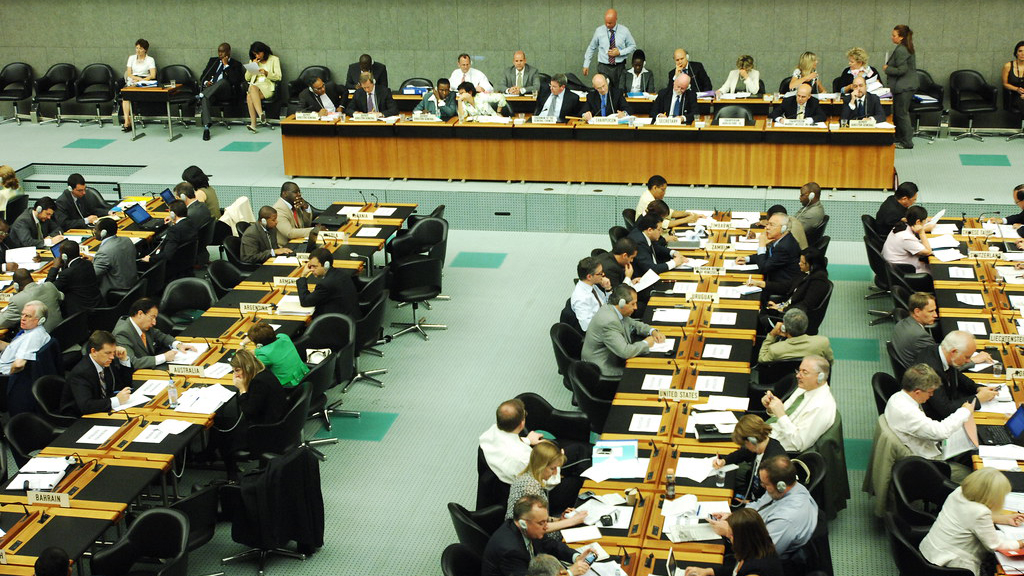The Black Consciousness Movement pioneered by Steve Biko played a crucial role in the resistance to Apartheid in South Africa. Pursuing broad coalitions alongside ideas of Black theology and indigenous values, Biko’s role in the anti-Apartheid struggle can be read as one of philosopher as much as activist.
This post is a winning entry in the LSE student writing competition Black Forgotten Heroes, launched by the Firoz Lalji Institute for Africa.
Born 18 December 1946, Steve Biko was a South African activist who pioneered the philosophy of Black Consciousness in the late 1960s. He later founded the South African Students Organisation (SASO) in 1968, in an effort to represent the interests of Black students in the then University of Natal (later KwaZulu-Natal). SASO was a direct response to what Biko saw as the inaction of the National Union of South African Students in representing the needs of Black students.
Biko’s experiences under Apartheid drove his philosophy and political activism. He had witnessed police raids during his childhood and lived through the brutality and intimidation the Apartheid government was known for. Biko’s philosophy focused primarily on liberating the minds of Black people who had been relegated to an inferior status by white power structures, seeing the power struggle in South Africa as ‘a microcosm of the confrontation between the third world and the first world’.

The philosophy of Black consciousness
The Black Consciousness Movement centred on race as a determining factor in the oppression of Black people in South Africa, in response to racial oppression and the dehumanisation of Black people under Apartheid. ‘Black’ as defined by Biko was not limited to Africans, but also included Asians and ‘coloureds’ (South Africans of mixed race including African, European and/or Asian origin), incorporating Black Theology, indigenous values and political organisation against the ruling system.
The movement viewed the liberation of the mind as the primary weapon in the fight for freedom in South Africa, defining Black consciousness as, first, an inward-looking process, where Black people regain the pride stripped away from them by the Apartheid system. His philosophy casts a positive retelling of African history, which has been heavily distorted and vilified by European imperialists in an attempt to construct their colonies. In his writings, he notes that ‘[a] people without a positive history is like a vehicle without an engine’.
At the heart of this thinking is the realisation by blacks that the most potent weapon in the hands of the oppressor is the mind of the oppressed
Steve Biko
A necessary step towards restoring dignity to Black people, according to Biko, involves elevating the heroes of African history and promoting African heritage to deconstruct the idea of Africa as the dark continent. Black consciousness seeks to extract the positive values within indigenous African cultures and to make it a standard with which Black people judge themselves – the first form of resistance towards imperialism and Apartheid. According to Biko, ‘what black consciousness seeks to do is to produce at the output end of the process, real black people who do not consider themselves as appendages to white society’.
In Apartheid South Africa, Black consciousness aimed to unite citizens under the main cause of their oppression. Biko’s philosophy goes further to introduce the concept of Black theology, arguing the message in Christianity needs to be taught from the perspective of the oppressed to fit the journey of Black people’s self-realisation. According to Biko, Black theology must preach that it is a sin to allow oneself to be oppressed. Adapting Christianity to African values and belief systems is at the core of doing away with ‘spiritual poverty’.
In 1972, Biko founded the Black People’s Convention as an umbrella organisation for the Black Consciousness Movement, which had begun sweeping through universities across the nation. One year later, he and eight other leaders of the movement were banned by the South African government, which limited Biko to his home of King William’s Town. He continued to defy the banning order, however, by supporting the Convention, leading to several arrests in the following years.
On 21 August 1977, Biko was detained by the police and held at the eastern city of Port Elizabeth, where he was violently tortured and interrogated. By 11 September, he was found naked and chained to a prison cell door. He died in a hospital cell the following day as a result of brain injuries sustained at the hands of the police. Although the details of his torture remain unknown, Biko’s death has been understood by many South Africans as an assassination.
Black consciousness was beyond a movement; it was a philosophy deeply grounded in African Humanism, for which Biko should be considered not only an activist but a philosopher in his own right. His legacy remains one deeply relevant today – of resistance and self-determination in the face of widespread oppression.
All quotes are taken from Steve Biko’s selected writings in his book ‘I write what I like’.
Photo: Steve Biko. Stained glass window by Daan Wildschut in the Saint Anna Church, Heerlen (the Netherlands), ca. 1976. Source: Wikimedia Commons. Licensed under CC BY-SA 4.0.






Black history should be spread to empire the youth of Africans and erase the mind motive of slavery
The Born Frees ( Everyone Who Is Born During The State Of Independence Of South Africa ) Of South Africa Should Acknowledge Historical Legitimate Activists As Honoured Egalitarians And Patriots Who Fought For Freedom, Liberty & The Downfall Of Apartheid Regime. Those Legends Fought For Our Rights And Privileges We Are Currently Enjoying.
I’m The Top Learner (Historian) Of Mavalani High School Which Is Located South Africa In Limpopo.
This really helped me in my biography project and i got 85%
Thank you so much for the summary. I’m assisting a grade 5 learner with her school project
As a black South African woman in her 50s, I think it is every child’s right to know who they are. Black consciousness was and still is necessary. I’m saddened by what the apartheid regime did to us.